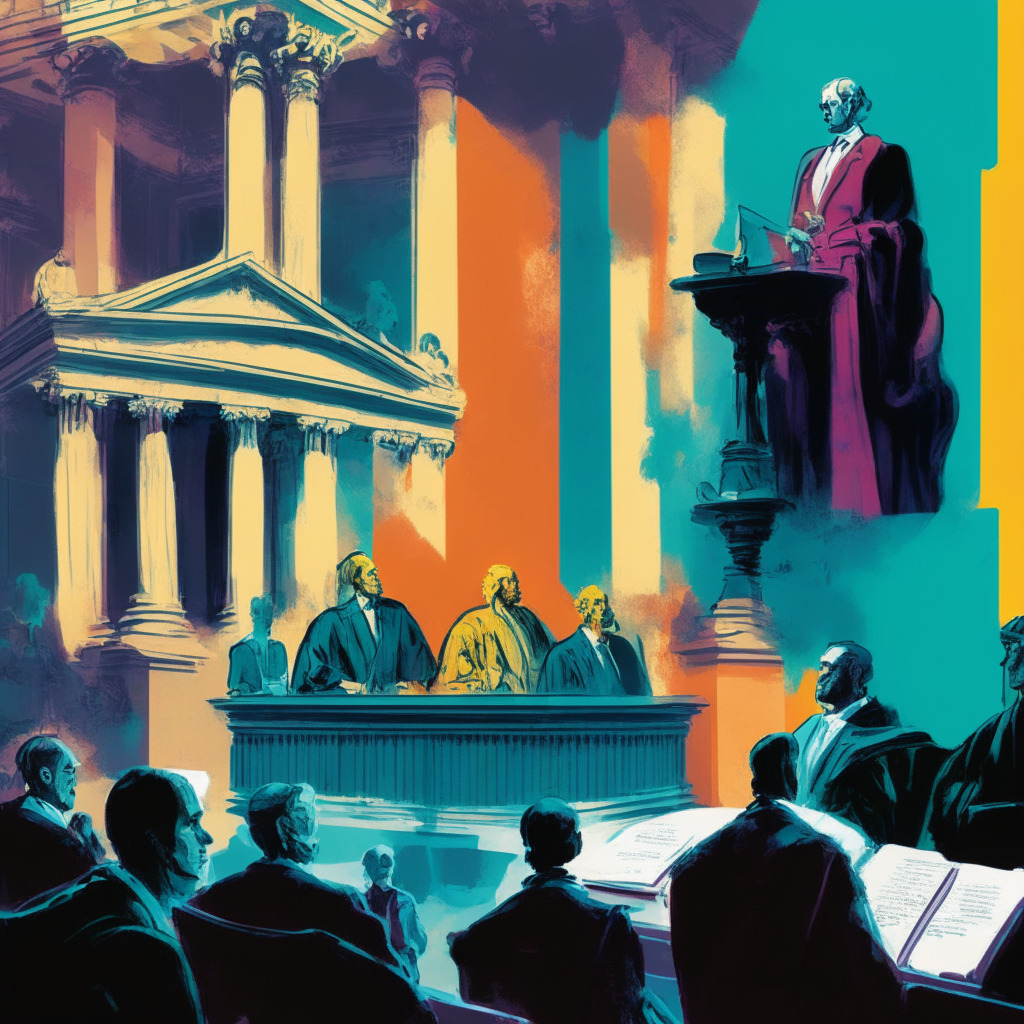In the midst of an ongoing lawsuit by the Securities and Exchange Commission (SEC) against crypto exchange Coinbase, U.S. Senator Cynthia Lummis and a group of experts – together with crypto lobbying organizations – have taken a bold stand. They assert that the SEC is exceeding its jurisdiction by examining crypto trading platforms as unregistered securities exchanges. A significant court action was instigated by the SEC against both Coinbase and Binance, in June, reinforcing the argument for intricate legislative regulation of this largely ungoverned sector.
These perspectives, offered as amicus briefs to Judge Katherine Polk Failla, back up Coinbase’s own denial of SEC allegations. Coinbase stipulates that if the transactions mentioned don’t fit the standards of an investment contract, then invariably, there can’t be a violation of securities law; this viewpoint was expressed in its motion for judgment earlier this month.
Presuming wider implications from this lawsuit, Lummis’ brief suggests that the question of SEC authority is one for Congress, rather than being dictated by the SEC’s interpretation. Most of these supporting briefs draw from the recent Supreme Court judgment, West Virginia vs. the Environment Protection Agency, which specifies that regulatory bodies are overstepping if they expand their mandate without Congressional sanction.
However, another U.S. Federal Judge, Jed Rakoff, rejected a similar argument in a recent SEC case against a different crypto platform. Rakoff maintained that the crypto industry is not of sufficient significance yet to necessitate those Supreme Court precedents.
Balancing the tumultuous environment, it’s indistinct whether Congress is prepared to effect immediate and overarching crypto regulation. The House Financial Services and Agriculture Committees have advanced proposed legislation tied to market structure and stablecoin concerns, but these are yet to be passed. The potential of these bills stumbling in an evenly balanced Senate remains a probability.
Senator Lummis, alongside Senator Kirsten Gillibrand, highlighted the importance of new crypto specific bills they’ve proposed over the years. These legislative constructs acknowledge that the crypto industry isn’t wholly encompassed by existing securities laws under the SEC’s purview, but rather, it overreaches into the authority of the Commodity Futures Trading Commission (CFTC).
Given his stance, SEC Chair Gary Gensler insists that most crypto tokens meet the standards for securities regulations. Admittedly, crypto securities are still a puzzling sector, abounding with potential gains and dangers. The existing conversation underscores a vital need to establish a comprehensive and globally mindful approach to avoid excesses and instill trust in these markets. This debate marks a heady moment in the evolution of financial systems and governance.
Source: Coindesk




